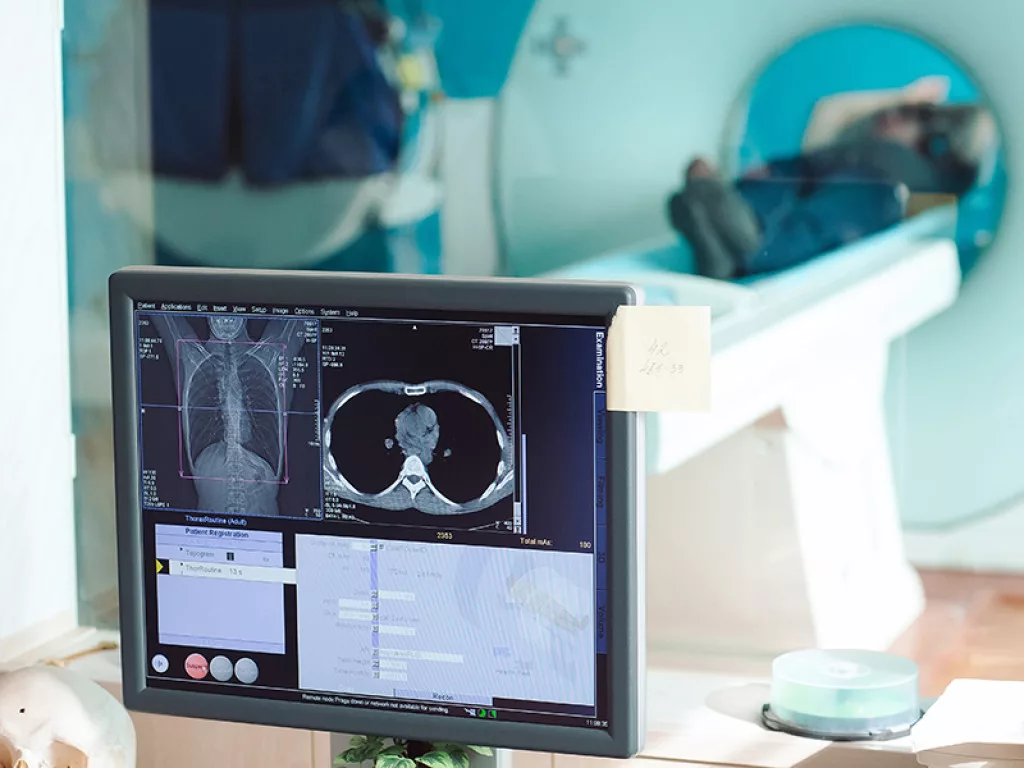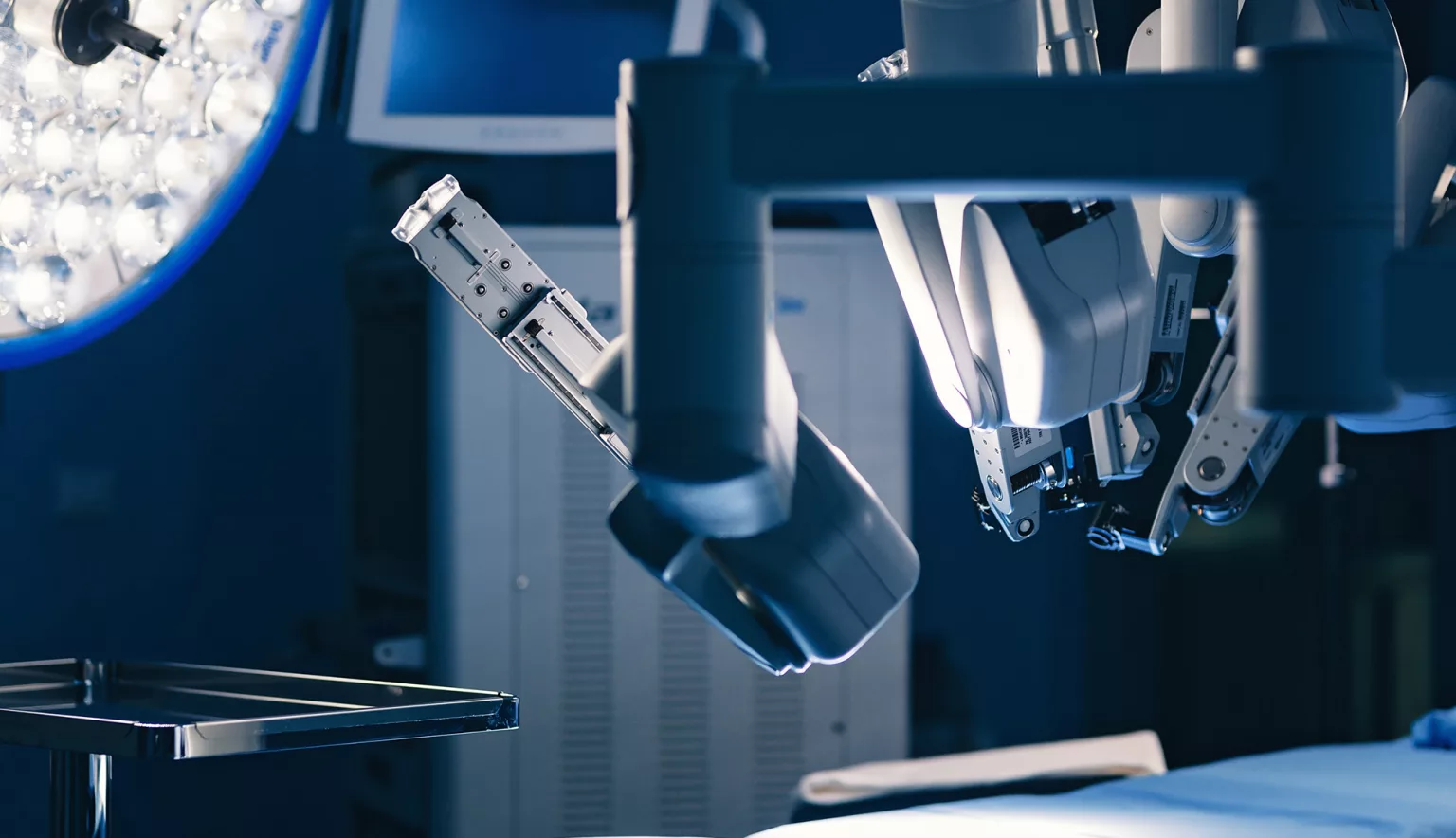A vital element of modern healthcare delivery, we talk to the Association of British HealthTech Industries about providing products and services to help people live better lives.
- SPOTLIGHT ON BRITISH HEALTHTECH
- QANDA WITH ASSOCIATION OF BRITISH HEALTHTECH INDUSTRIES (ABHI)
- Can you expand on the inception and initial vision of ABHI?
- How have the association’s objectives evolved over the years?
- What excites you most about working in this industry?
- Conversely, what are its greatest challenges?
- What trends are transforming the development of HealthTech across the UK?
- What are some key projects that ABHI is involved in?
- Finally, how do you see the future of HealthTech developing across the UK?
SPOTLIGHT ON BRITISH HEALTHTECH
Every single person, at some point in their lives, will encounter a HealthTech product. The spectrum is vast – ranging from something as simple as a wound dressing, to highly advanced robot-assisted surgery. HealthTech is crucial in the treatment of a number of chronic and life-threatening conditions including cardiovascular disease, cancer, and diabetes, not to mention its critical role in diagnostics services to enable early detection.
In the UK, the sector is one defined by dynamism and innovation. As reported by TechNation, in 2020 alone, the UK was ranked third in the world for investment raised in HealthTech, behind only the US and China. Indeed, HealthTech represents the UK’s largest employer within the Life Sciences field, accounting for approximately 131,800 employees, according to figures taken from the Government database. The industry is primarily composed of small to medium-sized companies, with 97 percent of all UK HealthTech companies reporting less than 250 members of staff.
The majority of these companies find their customer in the dominating force of the UK’s healthcare sector – the NHS – the single-payer healthcare provider that boasts one of the top five largest workforces in the world. In spite of this, a shortage of medical staff is one of the greatest challenges facing the NHS, hence the vital need for technological advancements to both lessen workloads and streamline the efficiency of the current system.
With the sector’s relevance and vital importance rising to the fore during the COVID-19 pandemic, all HealthTech players are pioneering the recovery of the healthcare system. Adjacent to this, all bodies are tasked with advancing the two major agendas of sustainability and digitalisation for a tech-driven future to remain in good health.

“From MRI machines to surgical robots, every one of us in our lives will engage with a HealthTech product or service. It’s hard not to be excited about working in an industry that has that impact”
Jonathan Evans, Associate Director, Communications, ABHI

QANDA WITH ASSOCIATION OF BRITISH HEALTHTECH INDUSTRIES (ABHI)
Championing HealthTech for life, ABHI is the trade association unifying the industry in the UK. We delve into the organisation and its forecast for a dynamic sector with Associate Director of Communications, Jonathan Evans.
Can you expand on the inception and initial vision of ABHI?
Jonathan Evans, Associate Director, Communications (JE): ABHI is almost 35 years old. It was established from the need for the industry to coordinate a single, coherent voice. A huge driver behind its inception was the development of the European and British standards and the increasing need to demonstrate compliance. In 1993, the Medical Devices Directive built on this with the actual regulation that formalised the requirements of manufacturers. ABHI played a really active role in that development, and to this day, the association’s credentials in the regulatory space remain a defining strength of ours. Although so much has happened over the years, we remain true to our core principles of supporting companies and providing a single coherent voice to government.
How have the association’s objectives evolved over the years?
JE: Regulation is still writ large throughout everything that we do. Fundamentally, our core role remains as that of a trade association, acting as the single voice to government, the health service, regulators, and other important stakeholders. We strongly represent our membership community, but we also play a wider role on behalf of the industry in terms of promoting its benefits, and fostering its growth. We also ensure its reputation as a trusted partner to the NHS and other health systems is well recognised.
Whilst our fundamentals remain true, you only have to look at the past five years and all the challenges they have bought – Brexit, COVID-19, supply chain issues, etc. to see how nimble we have to be in addressing all the things that are happening around us. On top of this, we are also accelerating our work on diagnostics and the digital health agenda, as well as the critical topic of sustainability. We have had to respond to these issues, providing support and guidance to our membership along the way.
It’s interesting in terms of how both the association and the industry have progressed. Just a few years ago, PPE, testing equipment and ventilators were abstract items, but now they are part of common language. There is generally a much greater understanding now of the critical role that the industry plays. That’s a really important message that we’ve been able to convey, and the way the HealthTech sector really stood up in response to COVID-19 was exceptional.

What excites you most about working in this industry?
JE: It’s an industry that saves and enhances people’s lives every day. It’s cutting edge and led by science and innovation, but it’s also fundamental to well-functioning healthcare systems. From wound dressings to hip implants, MRI machines to surgical robots, every one of us in our lives will engage with a HealthTech product or service. It’s hard not to be excited about working in an industry that has that impact.
Conversely, what are its greatest challenges?
JE: Practically speaking, the fall-off in elective procedures that we’ve seen in the last couple of years has been really damaging – not just for our members but for those needing interventions, like cataracts, orthopaedic implants and life-saving diagnostic services – there are now so many people waiting for such services because of COVID-19.
Regulation is also changing – we’ve left the European Union, and as part of that we are developing our own sovereign regulatory system in the UK. Regulatory change brings complexity and there are questions around capacity issues within the system to be able to manage that. The landscape is very challenging and costly for companies, particularly since the HealthTech industry primarily consists of small and medium enterprises (SMEs), who are the typical drivers of innovation, and where cost can really hurt if it rises. This regulatory landscape is arguably our biggest challenge, since if you can’t regulate your products, you have no business. Getting this right is clearly important, but it will play a key role in ensuring the UK is an attractive place to do business.
The broader cost to do business has skyrocketed in the past couple of years too, with inflation, the cost of raw materials, shipping, maintaining access to talent – there are so many elements at play. But whilst there are a lot of challenges, there are also opportunities, and HealthTech will play a key role in getting health systems back on track.

What trends are transforming the development of HealthTech across the UK?
JE: The first is diagnostics and a shift within the sector towards early detection and prevention. The pandemic saw the real need for us to develop robust testing capabilities – not just for major shocks like COVID-19, but also for early detection more broadly. This is pretty fundamental – if you spot something early, it significantly increases the chances of a positive outcome for the patient. This also has a huge knock-on effect in terms of savings in time, money and capacity in the healthcare system.
Equally, the use of data-driven healthcare is becoming more commonplace. In June, the government launched a plan for digital health and social care which will see improvements to the NHS app for example. We’ve heard a lot about digital healthcare for a long time, and I think it’s fair to say that the healthcare system is a bit of a laggard in this respect, compared to other sectors like banking, or retail. But naturally, we’re very protective over health data, so there’s a reason why we might be behind. There is huge opportunity here though; if you look at how digital tools can help pathologists for example to scan thousands of images for signs of cancer, this can allow clinicians to free up their time and pinpoint earlier detection and treatment. We’ll see a lot more digital diagnostics in the future.
In terms of the development of technology, the sustainability agenda is going to be huge. The NHS has the bold ambition to reach net zero by 2045. Since this is the primary customer for all our members, that’s going to create a huge role for them to play in their own sustainability journeys. For example, companies are now looking to incorporate circularity into their products and are rethinking how they source and develop those products. Many products within healthcare need to be single-use, however, but you can still look at recycling or offsetting within the supply chain. This is increasingly being built into procurement decision-making, but it is also important to recognise how technology can be utilised to deliver healthcare in a more sustainable way. Remote monitoring, for example, can mean less trips into hospital and therefore less vehicles on the road.
What are some key projects that ABHI is involved in?
JE: On the topic of sustainability, we have just brought on board a full-time staff member to manage our sustainability work. We have also just launched a sustainability framework for action, which was funded by members of our Board of Directors, and is a strong indication of their commitment to this. This essentially gives all of our members a roadmap of what needs to be achieved by which date and how they can apply this to their own businesses. This has already been very well-received since it gives clear, practical guidance.
Another project that we have is called Mentoring HealthTech. Within our membership, we have lots of SMEs but also some larger multinationals that are household names. Through this programme, those larger companies can provide support to our smaller members in an entirely non-competitive fashion. By partnering with larger members, smaller companies can benefit from their experience to help them grow and learn from each other.
We are also heavily involved in international work. The sector is already a big driver of growth as a significant employer in the UK, with over 130,000 people in HealthTech, and a lot of these businesses export. So, we have a fundamental role to play in supporting the sector to enter new markets and jurisdictions.
We host a number of UK Pavilions at key trade shows across the globe, including events like Arab Health in Dubai, and MEDICA in Germany, and our US Accelerator Programme gives small UK companies a helping hand in entering the US, using certain states as a springboard to enter new jurisdictions. We started with Texas, and now we’re in California, Tennessee, and Florida, amongst others. That programme has grown quickly and organically, and we have 40 companies within the 2022 cohort. The US has a very receptive business environment, but the scale and cost of entry can be a challenge for small companies, so this enables them to take the risk out of their market entry by leveraging our connections to support their strategy. We’re looking to replicate that model in other areas throughout the world based on that framework, and we’re excited to see how it will play out.

Finally, how do you see the future of HealthTech developing across the UK?
JE: For the next three to five years, it will mainly be a case of supporting the health service to get back on track and to negate the impact of COVID-19. There are so many patients who are still waiting for a new hip, or certain checks and scans, and that’s all against a backdrop of an overstretched workforce within the NHS. The HealthTech industry stands ready to support the health service with these challenges, and HealthTech will not only be important for supporting procedures, but in supporting clinicians to free up their time, and therefore enhance patient outcomes.
Elsewhere, I think we will see a real advancement in innovative surgical innovations following some exciting developments in minimally invasive and robotic assisted surgery.
We are also seeing an interesting convergence between traditional devices, diagnostics, and IT. Before, devices, diagnostics and digital health were all fairly siloed segments, but increasingly they are coming together. Therefore HealthTech has become the best descriptor to cover all those elements.
So many exciting things are ahead, but right now there is an important role in getting our healthcare system back on track.






























